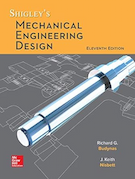The Benefits of Mentorship for Engineers
The field of engineering is constantly evolving, with new technologies, regulations, and best practices emerging all the time. To succeed as an engineer, it's essential to stay up to date and continuously grow your skills and knowledge. One effective way to do this is through mentorship. A mentor can provide guidance, support, and insight as you navigate your career, helping you to grow and reach your professional goals.

What is Mentorship?
Mentorship is a relationship between an experienced individual (the mentor) and a less experienced individual (the mentee) in which the mentor provides guidance, advice, and support to help the mentee develop their skills and knowledge. In engineering, mentorship relationships can be formal or informal, and may involve one-on-one meetings, regular check-ins, or opportunities for the mentee to observe the mentor at work.
The Benefits of Mentorship for Engineers
Mentorship can be a valuable tool for engineers seeking career guidance, professional networking, skill development, and a confidence boost. A mentor can provide insights and advice, help identify strengths and weaknesses, expand your network, and provide practical tips for improving technical and soft skills. Through mentorship, engineers can gain the confidence needed to pursue new opportunities and overcome self-doubt.
Career Guidance
A mentor can provide valuable insights and advice as you navigate your career. They can help you to identify your strengths and weaknesses, set professional goals, and create a roadmap for success. They can also provide guidance on how to overcome obstacles and challenges along the way.
Professional Networking
Mentors can introduce you to other professionals in your field, expanding your network and increasing your opportunities for professional growth. They can also provide introductions to potential employers or clients, helping you to build your reputation and advance your career.
Skill Development
By working with a mentor, you can learn from their experience and expertise. They can provide practical tips and guidance on how to improve your technical skills, as well as help you to develop important soft skills like communication and time management.
Confidence Boost
Having a mentor can give you the confidence you need to take on new challenges and pursue new opportunities. They can provide support and encouragement as you work to achieve your professional goals, helping you to overcome self-doubt and build a strong sense of self-efficacy.
Finding a Mentor
If you're interested in pursuing mentorship, there are a number of steps you can take to find the right mentor for you. Start by considering your professional goals and the areas in which you'd like to grow. Then, reach out to your professional network and colleagues, and ask for recommendations. You can also look for mentorship programs or events through your professional organization or local engineering community.
When you find a potential mentor, reach out to them and express your interest in working with them. Be clear about your goals and what you hope to gain from the relationship. Be prepared to invest time and effort in the relationship, and be open to feedback and suggestions from your mentor.
Maintaining a Mentorship Relationship
Once you've established a mentorship relationship, it's important to maintain regular communication and stay engaged. Schedule regular check-ins with your mentor, and be open and honest about your progress and any challenges you may be facing. Make the most of your time together by asking questions, seeking feedback, and learning as much as you can.
It's also important to show appreciation and gratitude for your mentor's time and support. A simple thank-you note or small gesture can go a long way in maintaining a positive and productive relationship.
PDH Classroom offers a suite of online continuing education courses tailored to engineers. These courses can be used to fulfill PDH credit requirements for maintaining your PE license, or just as a part of staying ahead in your field.
Mentorship can provide numerous benefits for engineers at all stages of their careers. From guidance on navigating the industry, to help with professional development and skill development, to networking opportunities, having a mentor can be a valuable asset. It is important to take the time to find a mentor who aligns with your goals and values and to regularly communicate with them to ensure that the relationship is beneficial for both parties. Ultimately, the right mentor can help you grow as an engineer and achieve your professional goals.




